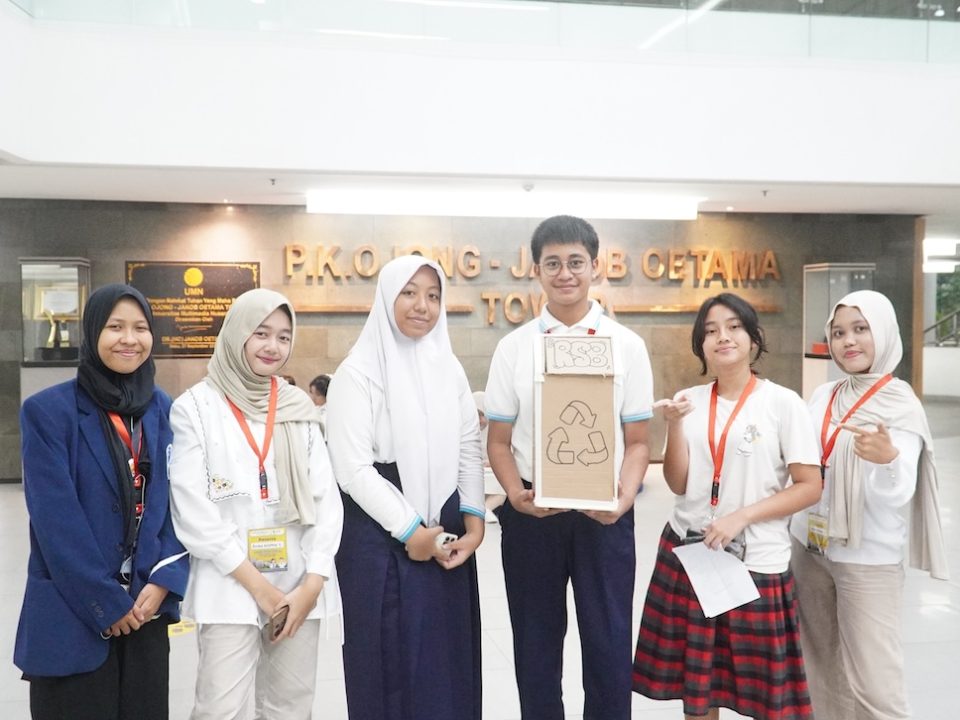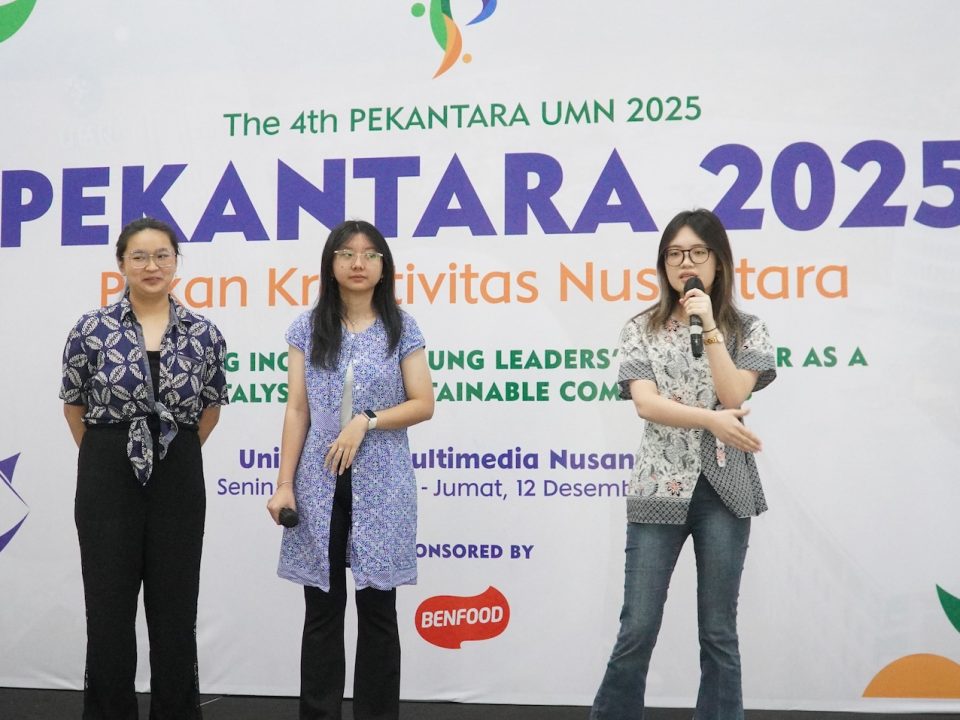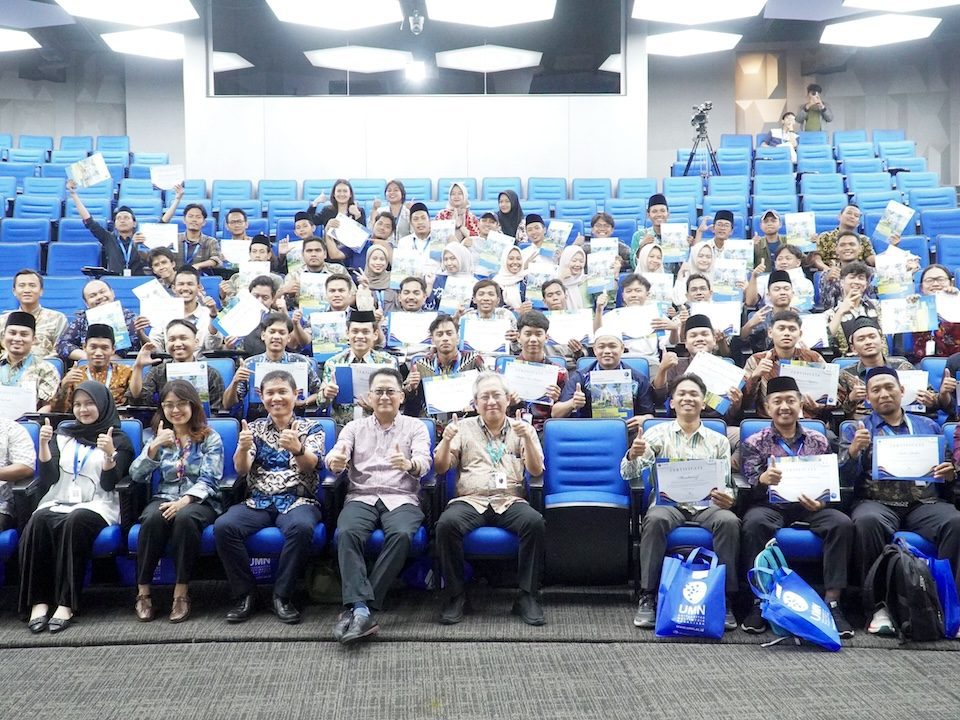
Career Case Competition with CDC UMN
November 24, 2024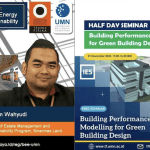
Spreading Energy Awareness Beyond Campus
November 26, 2024Addressing the increasing complexities of climate change requires strong collaboration between government, academia, and civil society organizations. One strategic initiative undertaken is the community service project titled “Capacity Building on Data-Based Campaigns and Data Management for Environmental NGOs in Bandung.” This project focuses on empowering environmental NGOs, which play a crucial role in policy advocacy and climate adaptation program implementation. By leveraging accurate and well-managed data, NGOs can optimize their campaigns to effectively influence policy changes and drive concrete actions on the ground. Data serves as a critical foundation to ensure adaptation strategies are not only relevant but also supported by strong evidence tailored to local and regional needs.
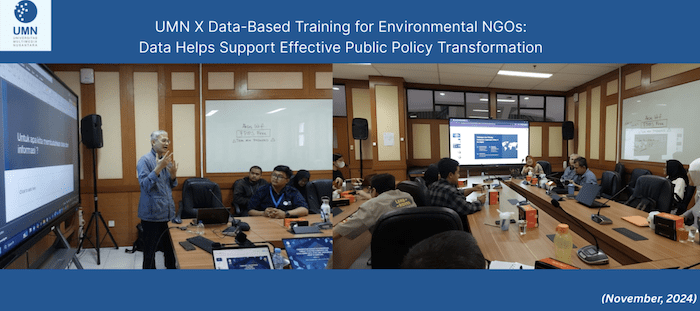
The importance of a data-driven approach lies in the highly localized and context-specific nature of climate risks. In Bandung, for example, rising temperatures, increased rainfall intensity, and frequent flooding directly affect communities and ecosystems. Equipped with data management skills, NGOs can precisely map these risks, estimate potential impacts, and design targeted and measurable adaptation campaigns. This fosters more effective collaboration between NGOs and local governments to develop responsive and sustainable adaptation policies. Ultimately, this training strengthens the capacity of civil society organizations and builds a solid foundation for inclusive, impactful, and long-term climate adaptation.
Revitalizing Dungus Ki Haji Forest: A Collaborative Effort Between UMN Students and GMLS for Climate Adaptation
Students from Universitas Multimedia Nusantara (UMN), working alongside the Gugus Mitigasi Lebak Selatan (GMLS) community organization, have launched a revitalization project in the Dungus Ki Haji Forest located in Kampung Nagajaya, Lebak Regency. This initiative focuses on building community resilience through forest conservation efforts that include vegetation mapping, ecosystem analysis, and empowering local residents. The project also involves the creation of educational materials highlighting the forest’s biodiversity to raise awareness and encourage community participation in environmental preservation. This collaboration exemplifies how university students and NGOs can play a pivotal role in supporting local climate adaptation and sustainable natural resource management.
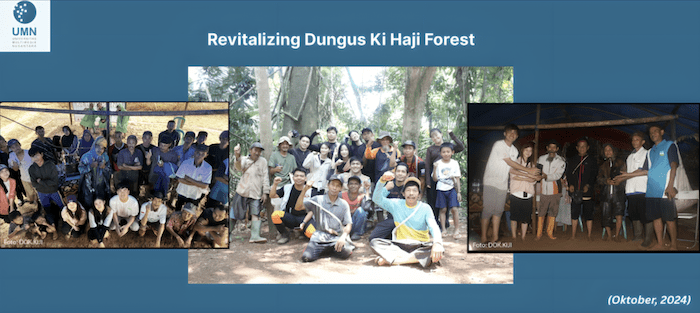
By applying a data-driven and participatory approach, the project goes beyond ecological restoration to foster economic empowerment through eco-tourism development based on conservation principles. This creates new livelihood opportunities for local communities while ensuring the forest’s long-term protection. The synergy between UMN students, GMLS, and local residents demonstrates a successful model of climate adaptation that integrates environmental, social, and economic benefits, contributing to sustainable development goals at the regional level. Read more here.
UMN for Safe School: Strengthening Climate Adaptation through NGO Collaboration and Education
In 2024, Universitas Multimedia Nusantara (UMN) demonstrates its commitment to climate adaptation by launching the “UMN for Safe School” program in collaboration with Sky Volunteer, a non-governmental organization specializing in disaster mitigation and preparedness across Indonesia. The program targets elementary schools in Sumedang Regency, a region highly vulnerable to earthquakes, focusing on educating students and teachers about disaster risks and effective mitigation strategies. By combining the expertise of lecturers and students from multiple academic disciplines with the practical experience of Sky Volunteer, UMN creates a multidisciplinary platform to foster disaster-resilient communities. The program’s implementation in public schools like SDN Manglayang 1 and SDN Manglayang 2 reflects an implicit partnership with local government educational authorities, ensuring broad access and institutional support.
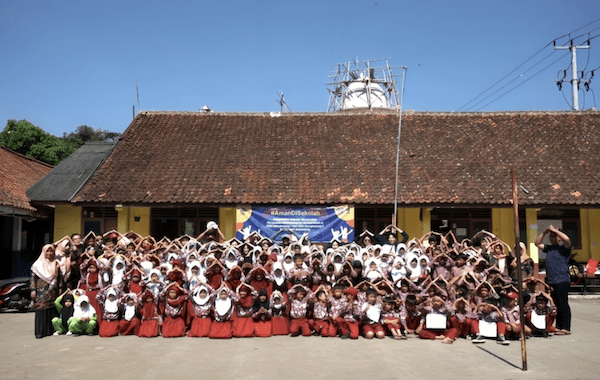
The impact of this collaboration is multifaceted: it equips young learners with vital knowledge and skills to respond to natural disasters, strengthening community resilience at the grassroots level. Moreover, by embedding disaster preparedness into school curricula, UMN advances Sustainable Development Goals 4, 11, and 13, promoting quality education, sustainable communities, and climate action. The partnership between UMN, Sky Volunteer, and local public schools exemplifies how academic institutions can effectively work alongside NGOs and government bodies to build adaptive capacities and create safer, more resilient environments for future generations. Read more here.
Smart Farming Innovation: MySalak Empowers Salak Farmers through AI and IoT Collaboration
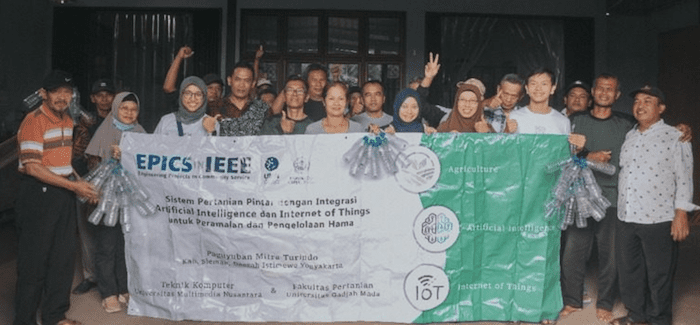
(Doc. Nabila Husna Shabrina)
On August 2024, Universitas Multimedia Nusantara (UMN) and Universitas Gadjah Mada (UGM), in collaboration with multiple stakeholders, developed the MySalak smart farming system to help salak farmers in Sleman, Yogyakarta adapt to climate variability and pest outbreaks. The project received funding support from EPICS in IEEE, totaling USD 5,300 or approximately IDR 85 million, along with matching support from UMN’s Institute for Research and Community Service (LPPM). The initiative involved academic experts, the Directorate of Horticultural Protection (Ministry of Agriculture), the Yogyakarta Agricultural Quarantine Office, the DIY Agricultural Office, the Mitra Turindo farmer group, and IEEE. The interdisciplinary nature of this project reflects a strong multi-stakeholder partnership focused on climate adaptation in agriculture.
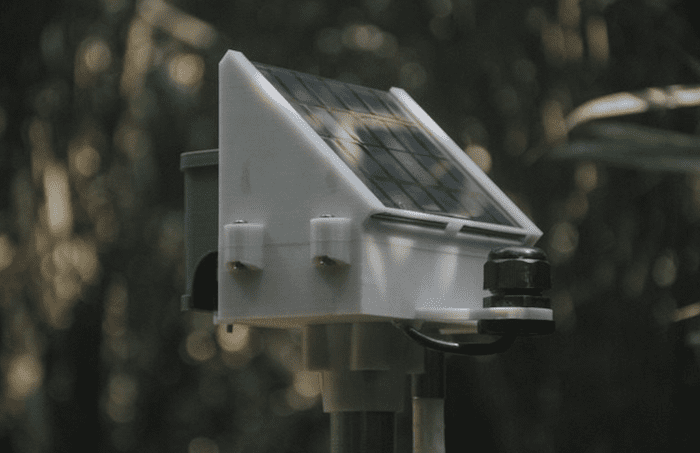
The IoT prototype made by the UMN team was installed in one of the farmer’s fields. (Doc. Nabila Husna Shabrina)
MySalak integrates Artificial Intelligence and Internet of Things technologies through solar-powered environmental sensors that measure temperature, humidity, rainfall, and light intensity. It includes a real-time pest monitoring system for fruit fly detection using AI-driven image processing, and a seven-day weather forecast feature. These tools address unpredictable climate conditions and help farmers make informed decisions to protect their crops. The data also supports compliance with export standards, enhancing the quality and marketability of Indonesian salak, which has struggled in the past due to pest-related rejections from importing countries.
This collaboration serves as a model for how academic institutions, government agencies, and local communities can work together to implement sustainable and scalable solutions to climate-related challenges. By empowering farmers with digital tools and scientific insights, the program not only contributes to ecological resilience but also strengthens economic opportunities in rural areas. The MySalak initiative clearly aligns with SDG 13 by fostering inclusive partnerships for climate adaptation and promoting knowledge-sharing across sectors that are vital to sustainable agriculture in a changing climate. Watch the video about MySalak here.

